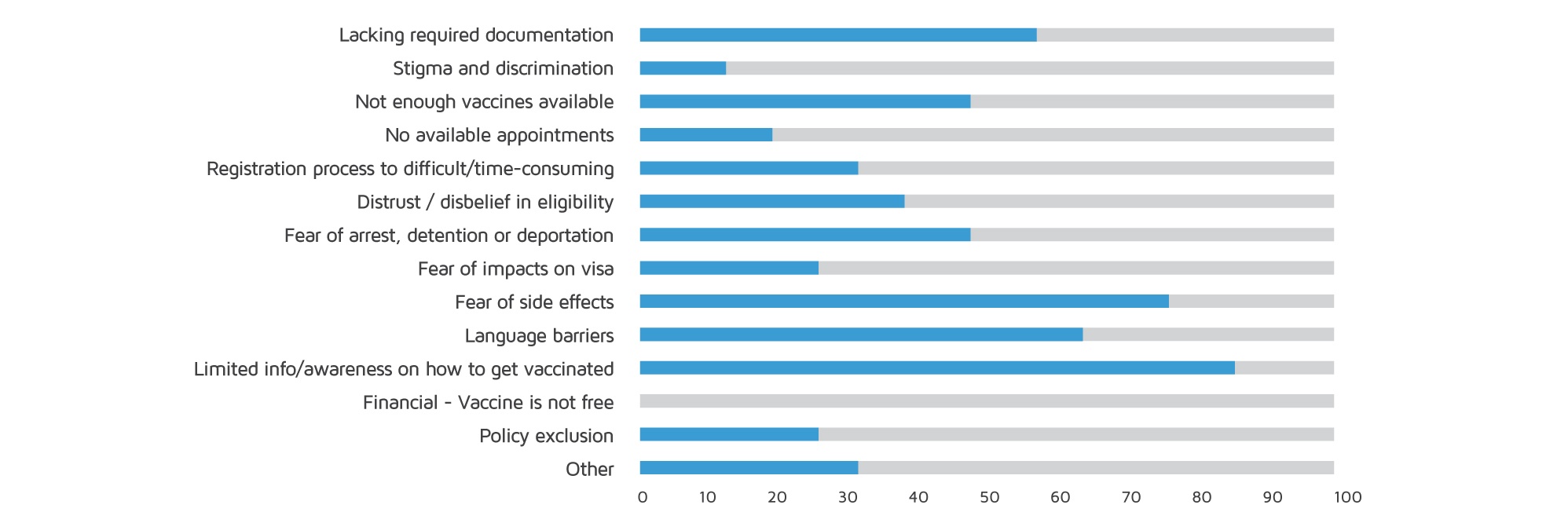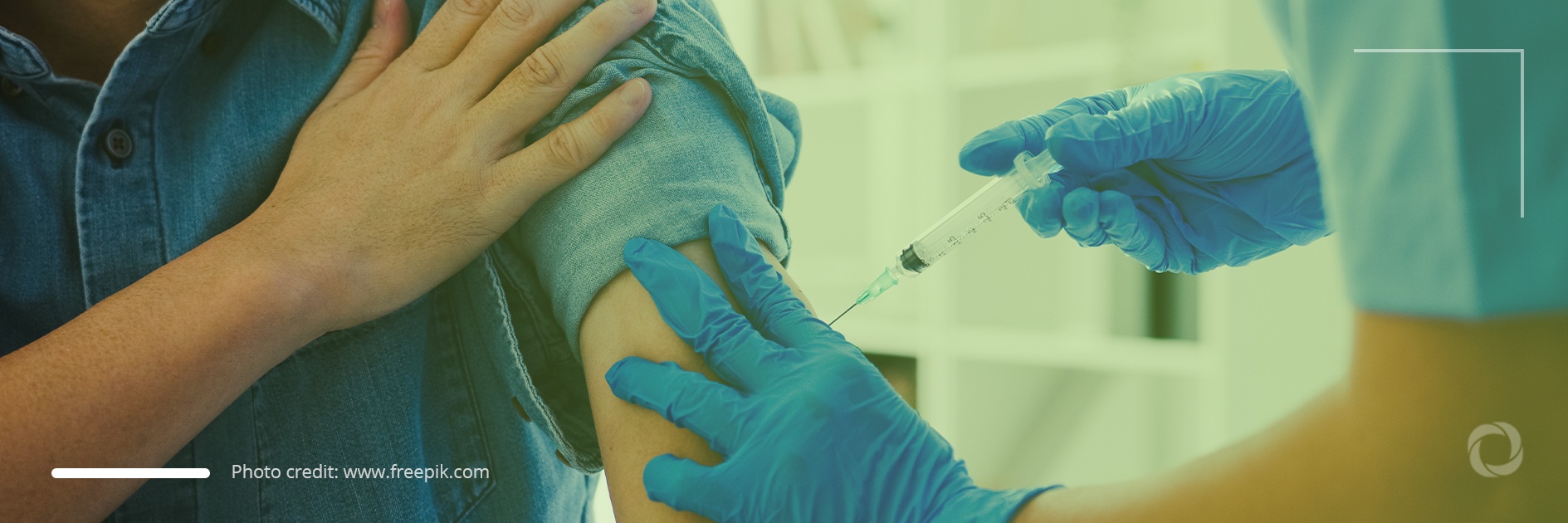The inclusion of refugees and migrants in the deployment of national vaccination campaigns is uneven and far from being universal. Only 101 of the 162 countries being monitored by the United Nations High Commissioner for Refugees have confirmed that refugees and migrants are being vaccinated within national vaccination programs, according to the latest report published by the World Health Organization (WHO). Accurate information about how to get vaccinated is the main barrier faced by migrants, reports the Red Cross Red Crescent Global Migration Lab.
According to the WHO publication, from February to March 2021, only 17% of 104 countries reported that refugees and asylum seekers in irregular circumstances had been explicitly included in their national vaccination plans. Thus, 86 countries have failed to guarantee equal rights for all within state vaccination programs.
Since then, global efforts have been intensified, with countries being encouraged to ensure equal access to vaccination for all. Countries revised their national vaccination plans and migrants began to receive vaccinations in 101 out of the 162 countries monitored by the United Nations High Commissioner for Refugees. However, in May 2021, the International Organization for Migration reported that only migrants in regular circumstances were being included in state vaccination programs, meaning only those people who had crossed the border legally and were residing in a country in line with its admission policy were vaccinated.
Francesco Rocca commented, “To beat COVID-19, we will need to focus both on the ‘hardware’ and the ‘software’ of successful vaccination. The hardware is about getting vaccines to every country and every community. The software is ensuring that everyone, including refugees and migrants, is informed and included.”
In terms of vaccine equity around the world, the situation is uneven as in high-income countries, 57.30% of the population had received their vaccine shots as of 30 August 2021 while in low-income countries only 2.14% of the population had received the vaccine. This discrepancy comes at a time when developing economies are host to 86% of refugees and asylum seekers.
Obstacles migrants, refugees and asylum seekers face
According to the report released by the WHO, migrants in irregular circumstances, as well as refugees and asylum seekers, face multiple barriers when it comes to vaccination. These obstacles include limitations in vaccine availability, a distrust of the vaccination and its benefits and safety, social impact and standards, a lack of information about how to get the vaccine, obstacles related to language barriers, lack of legal status, fear of arrest, custody or expatriation, and obstacles related to the difficult registration procedures for vaccination. A lack of awareness is the main obstacle faced by migrants followed by barriers related to the fear of side effects. Within the framework of this analysis, 52 national societies were surveyed in June 2021.
Fig.1. Main barriers faced by migrants in accessing COVID-19 vaccines

Country practices
Some countries have modified their national vaccination plans in a way to make them available for everyone regardless of status. For instance, Colombia decided to give 10-year provisional protection status to Venezuelan migrants thereby enabling them to register for vaccination. The USA requires no identification documents for vaccination while numerous EU countries have reported they would vaccinate all in their country regardless of status. Some countries have decided to give vaccine shots to asylum centers such as the Republic of Moldova and Serbia. Australia, Bangladesh, Malaysia, Maldives, and Thailand have involved refugees and migrants in their national vaccination plans.
In Ethiopia, migrants and refugees are not only included in national vaccination plans but refugee health workers are also involved in the state vaccine roll-out. Ann Encontre, the UN Refugee Agency’s Representative in Ethiopia said:
“It is so encouraging to see how refugees are helping at the front lines of the response, but also how the Government of Ethiopia is including refugees in their national vaccination program without discrimination. This is not only proof of true solidarity, but also a good thing to do, as the global pandemic has taught us that no one is safe until everyone is safe.”

